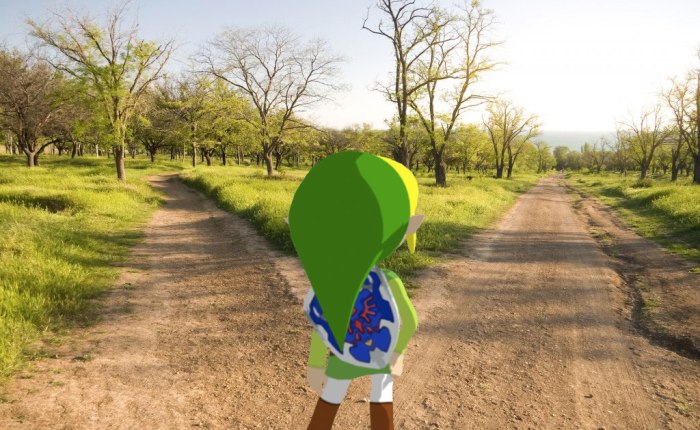A huge, horkin’ lump of fictive writing is critical problem solving. People don’t like to hear that.
Conflict is the basis of all storytelling. Without conflict, there’s no drama, no expression of character that isn’t simply expository. Right? If a book was just character exposition, it’d be a really dense psychoanalytical essay. Those are called character notes.
Which means you have to create a problem and then resolve that problem. I think this is where a lot of writers get stuck. I do, and somewhat frequently.
So what I’m trying to remember in any given scene I’m writing is that [Character] is in situation [A] and needs to get to situation [B]. How can I make that dynamic?
In my day to day life, I drive from home to work and nothing really happens other than some expected traffic and a few jackass drivers recklessly changing lanes. I wouldn’t relate this to my co-workers in a story (maybe just a, “Ugh, traffic was terrible,” exclamation, because I’m Cathy. Apparently.), because I’m still in situation [A]. Nothing’s really changed. I still go to work, and despite that being a different location from Home, it’s still the same as it ever was and not really a story to tell or even remember.
Essentially, the value hasn’t changed. Shawn Coyne, from the excellent Story Grid Podcast, speaks often about valence shifts. A beginning value has to turn by the scene’s end–from a positive to a negative, a negative to a positive, a negative to a double negative, etc.
Those shifts in value are inextricably linked to conflict. The broader story has the ultimate conflict, right? I’m gonna use Zelda here as an example, again, because that’s the way I’m drawn. Link can’t just find the Triforce in some bushes in Kokori forest. He’s gotta burn through the dungeons first, each one upping the ante in difficulty level, before the final showdown with Ganon. And even though Ocarina of Time ends shortly after it begins, you understand that something has changed.
Despite being unreligious, we can go biblical, if you like. We’ve heard that Job is faithful to his God, but we don’t know Job is faithful until a series of conflicts utterly destroy his life, but his willful servitude to God remains the same. Likewise, there isn’t so much written about the actual paradise of Eden, as there is Original Sin. Perhaps it’s more human to focus on the conflict of a serpent offering a divergent path than it is to ruminate on how awesome everything is/was. Extra sidenote: Milton’s Paradise Lost is far more interesting than Paradise Regained, and even the most studious English major would be hard pressed to remember the Paradiso part of Dante’s Divine Comedy, whereas everyone has a working familiarity with the Inferno. (Because metal.) And maybe that has to do with how placid Heaven is. It’s a story that you can’t tell and don’t really remember. But the journey there will always be more memorable, to borrow from the wisdom Facebook Macros.
In a lot of ways, it’s the tiny moments between great shifts and upheavals of story that conflict can be the most profound. Maybe I would (and have) related stories of commuting to work where I spilled coffee on my crotch and nearly ran into traffic. And there’s the brilliant Louis CK sketch about picking out groceries and not being able to pay for it, where financial circumstance stands in the way of the goal and Louis walks away with the awkward realization of preliminary necessities such as money. I bring this up because the most dreaded part of actually writing is usually the “maintenance scenes” that bring the plot into focus. And I myself dread these scenes, because they aren’t fun.
Why aren’t they? I have a feeling that if the I as the writer am not engaged in writing a scene, then the reader won’t be either. Throwing a ball a couple feet ahead of where you stand ad nauseum isn’t a sport and it isn’t much fun to watch. (It’s actually kind of disconcerting. Delilah.)
To solve this the South Park creators, Trey Parker and Matt Stone installed a policy in their writing room about using “but and therefore” statements in their outlines instead of “and then,” ensuring that the comedic and plot beats from the first act NECESSITATED the beats from the second act to respond to the first and also present a new situation, organically leading to the third act which results in an earned payoff.
And I feel the lesson there is that by investing into the questions and problems you have written in the first paragraph of a scene, a logic will present itself– so long as you are actively putting your story over the fire of conflict.
See what boils to the top.
